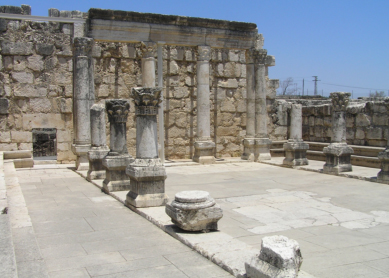When you hear “Psalms of Solomon,” you might first think of the canonical psalms
What are the Psalms of Solomon?
The so-called Psalms of Solomon (Pss. Sol.) consist of eighteen psalms preserved in Greek and Syriac. These psalms form part of the pseudepigrapha, which means that they were not actually composed by the legendary King Solomon but attributed to him later. Most scholars date the collection to around the first century BCE and have proposed different Judean groups as authors, for example, the Pharisees or a sect from Jerusalem. Some scholars have argued that the collection was originally written in Hebrew, but this has been challenged by recent studies, which propose that the collection was written in Greek. The Greek psalms were first published in 1626 by Juan Luis de la Cerda. The Syriac version was first mentioned by James R. Harris in 1909. Today, they are included in most modern editions of the Septuagint, the Greek Old Testament.
What is the content of these psalms?
The Psalms of Solomon artfully combine elements of individual and collective psalms. They include, among others, psalms of lament, psalms of wisdom, and hymns. Consequently, this collection is not only interpreted as psalms, but also as wisdom literature and prophetic writing.
The psalms are formulated rather generally and do not include any specific names, apart from Jerusalem. As a result, they can be read on different occasions, and the identification of the alluded events is debated. They consistently adapt religious themes found also in the Hebrew Bible and the Septuagint, for example, the importance of covenant, the election of Israel, and the Messiah.
The psalms as a whole move from Jerusalem’s lament of her sinful children (Pss. Sol. 1) to the anticipation of the messiah and a hymnic praise of God (Pss. Sol. 17–18). Psalms of Solomon 2; 8; 17 are historical psalms and deal with the conquest of Jerusalem, the sins of the inhabitants, and the advent of a Davidic messiah. Enemies (probably Pompey and Herodes) are depicted as instruments God uses to educate the sinful people. The messiah is sent by God to reassemble all the nations and reign in eternity. Psalms of Solomon 3–6; 12–16 describe the differences between the devout and sinners. Interestingly, the devout are not without sins. Instead, they acknowledge their sins. Psalms of Solomon 7–12 form the core of the collection and discuss central theological themes. Most importantly, they invoke God’s mercy and his education of the devout. Furthermore, they carry hope that the dispersed will be gathered and that God will remember the covenant with his people.
Overall, the Psalms of Solomon present suffering as justified because of the sins committed. Education prevents the devout from sinning again and saves them from eternal rejection. Finally, these psalms are an important historical and literary witness for the theology of the Second Temple Period and thus for the development of Judaism.




